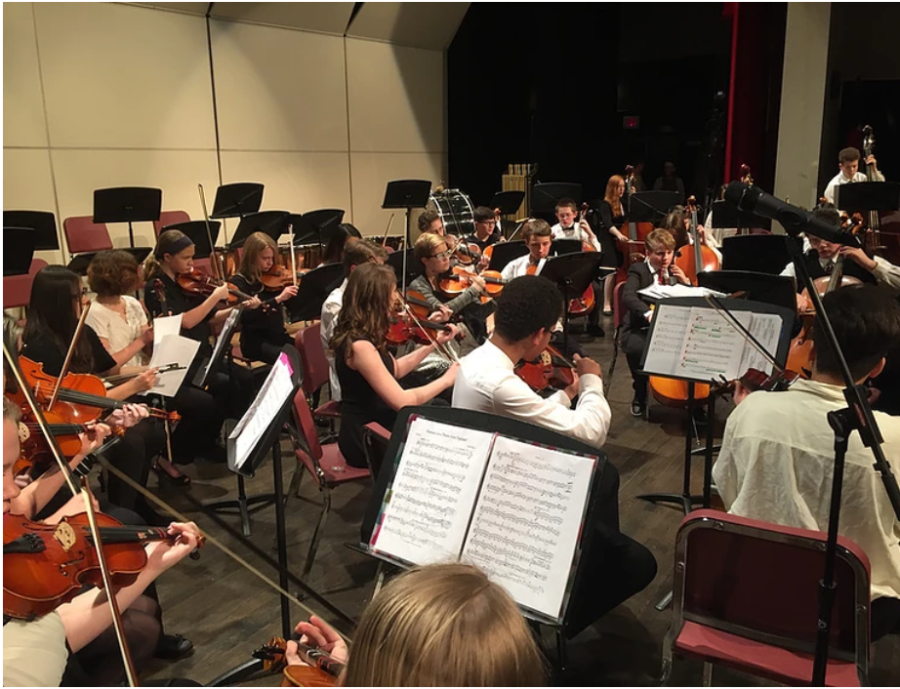How Listening to Music can Improve your Health
Years of research and studies have shown a significant tie between listening to music and an improvement in health and mood.
Music and Memory is a national program that focuses on using personalized playlists to enhance the lives of the elderly and sick. This program has had huge success. The enhanced playlists are created uniquely for each patient and are designed to conjure up warm memories and feelings of nostalgia. This program, along with others, is basing their philosophy on the power of music–and it is working.
AAHS sophomore Clayton Cox explains the importance of reflection and how music can trigger specific emotions.
“I believe music improves health because when I listen to upbeat music it helps me work out or get concentrated…” Cox explains. “…but when I listen to other, slower music, it helps me calm down and think about life so I can reflect.”
Like Cox described, music acts as an outlet of emotion, a comfort when in pain, a reflection when in thought and a relief when in stress.
Music can be an incredible outlet for emotion, but the question is, can music actually improve mood and, furthermore, physical health?
In a psychological study Kim Innes, a professor of Epidemiology at West Virginia University, elaborated on this.
“Both meditation and music listening are potentially powerful tools for improving overall health and well-being,” Innes said.
There are neurological and chemical systems as well as brain structures that are associated with positive moods, emotion regulation, attention and memory that activate selectively when we hear music.
If music is proven to increase brain stimulation and improve mood then, naturally, music should improve personal health status. Peoples’ moods and their regulation are directly related to one’s personal health- mentally and physically.
“Music can change your mood no matter what, it has helped me through hard stuff but also helped me celebrate the good times in life,” said junior Audrey Sandell.
“One of my favorite things in the world is to listen to songs that have memories attached to them,” Sandell continued.
As Sandell indicated, music has the capacity to trigger deep memories. This is why music can be so powerful, for it has the ability to encourage reflection and exploration within yourself while also adjusting along with your emotional phases.
Not only does music stimulate your emotions and memory as mentioned above, but it also improves brain stimulation that encourages a positive boost in concentration.
“Music makes you sing a lot and smile but it also helps me sit down and get focused when I need to,” said senior Josh Lujan. Lujan explains how music calms him down while simultaneously helping him to concentrate.
Psychologists posit that the brain is dynamic and adaptable, which allows us to form deep connections with music. According to Medicinenet.com, neuroplasticity is the brain’s ability to organize itself through forming new connections within the brain throughout your life. These connections are directly associated with the harmony of music.
In other words, the brain digests different experiences such as sounds, moments and observations to adjust to your surroundings and how you feel about them.
Although there is no definite proof of music soundly improving health, it is proven that music does affect and positively influence moods and the ability to concentrate. Furthermore, there is a direct correlation between having a positive mood and attitude to maintaining a healthy lifestyle; physically, mentally and emotionally.
Here at the Jetstream Journal, we’re big music fans. But, we want to know what you think.
Do you think music has the power to genuinely impact lives? Comment your opinion down below.

Hello! My name is Elina Landin, I am a junior at air academy. Putting the premise of my life into a few sentences is difficult however, writing, music...













